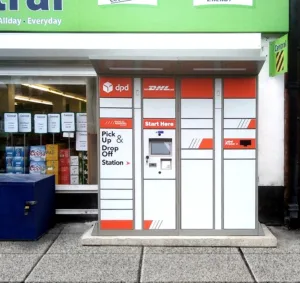By Thomas Makey, investment director at Gresham House Ventures
One of the most documented impacts of the coronavirus pandemic has been the acceleration of e-commerce, with many online businesses enjoying insatiable demand over the last 18 months. However, as pandemic restrictions are lifted, the sector is headed for much more volatile trading conditions.
With in-person outings once again possible, online retailers are having to fight harder for consumers’ attention – so it is crucial they keep maximising the profit from each customer. Key to achieving this are the technologies forming the building blocks of e-commerce.
These lesser-known technology providers allow e-commerce sites to enhance the customer experience, generate consumer behaviour insights, streamline operational processes and offer a variety of fulfilment options – boosting engagement rates across the customer life cycle. Regardless of how the recovery unwinds, and the uneven impact on consumer sectors this will have, the companies that build these technology tools stand to benefit in the medium term.
Conversion is key
While it has always been an area of focus for online retailers, as we enter the post-pandemic age with heightened competition for customer attention, improving the visit-to-purchase conversion rate has become critical to mitigate marketing cost inflation. We have identified London-based RevLifter as being well-positioned to boost both conversion rates and customer spend for e-commerce companies.
Founded in 2007, RevLifter provides a platform for online retailers to offer personalised deals, incentives and rewards to customers. The technology captures a range of data points on customers in real-time, which allows it to offer bespoke discount codes for each consumer. These personalised and relevant offers are more likely to be used by customers, but most importantly, they can be structured to deliver higher-order values, incremental margins and higher conversion rates for retailers.
We invested £1.5m in the company in 2020, having witnessed the strong growth of the business across the UK, US and Europe. The additional capital has allowed it to develop further features for boosting conversion rates, related to basket abandonment, push notifications and product recommendations.
Getting delivery right
Even more important than improving customer conversion is ensuring customers receive their products when they expect to – research has shown approximately half of one star customer reviews were driven by a poor post-purchase experience; delivery is thus mission-critical for e-commerce sites. Despite rapidly increasing parcel volumes over the last decade, the ‘last-mile’ delivery market remains highly fragmented, as building and maintaining integrations with carriers is complex and time-consuming.
Back-end technology platforms are paramount to addressing this issue. Ireland-based software provider Scurri is a cloud-based platform enabling e-commerce merchants to connect to more than 700 carrier services, providing greater choice and control over the delivery process, as well as better visibility over courier performance. The business enables millions of parcel deliveries every month and empowers retailers to create accurate labels, track shipments from dispatch to delivery, as well as access useful analytics.
Scurri has already secured high-profile retail customers – including eBay, Vision Direct and Gousto – on the strength and reliability of its platform. Attracted to its ability to target a large market through a disruptive business model, we invested €5m into Scurri to help the company grow its operations in the UK and invest in marketing, sales and product development.
Connecting the dots
While these building block technology businesses often target specific aspects of the customer value chain, some take a more panoramic stance, seeking to connect and enhance an e-commerce company’s tech stack.
As retailers scale, they struggle to rely on a single technology platform, instead requiring a range of specialised systems to deal with each aspect of the value chain – from warehouse management to shop front and customer relationship management. Patchworks is an integration platform automating and managing data flow between these systems, allowing companies to build a best-of-breed technology stack that functions harmoniously, with consistent data flowing between systems.
Founded in 2014, Patchworks has already acquired an impressive roster of more than 200 e-commerce clients – including Gymshark, Huel and Lounge. We recently invested £3.3m in the company and are working closely with them to bolster its sales and marketing capabilities and advance its product development efforts.
Conclusion
The unavoidable truth of retail today is that behind every great consumer brand, there are great technology providers. Investing in these backend businesses not only provides a standalone attractive investment opportunity, it also improves investors’ understanding of the inner workings of e-commerce and thus adds value when investing in direct-to-consumer brands.












